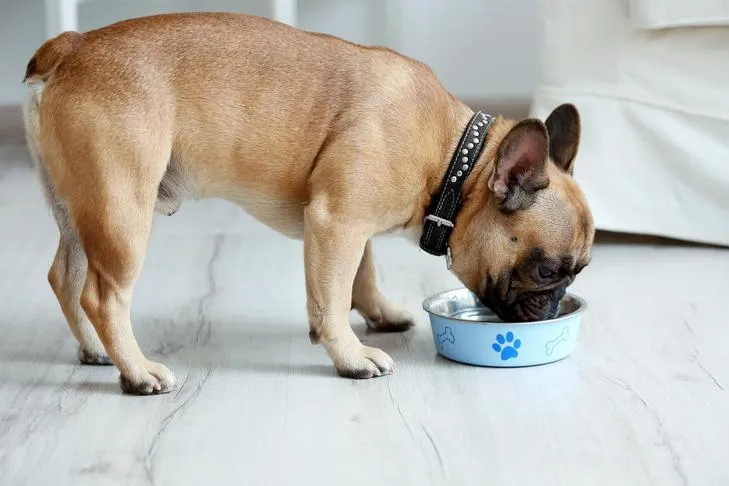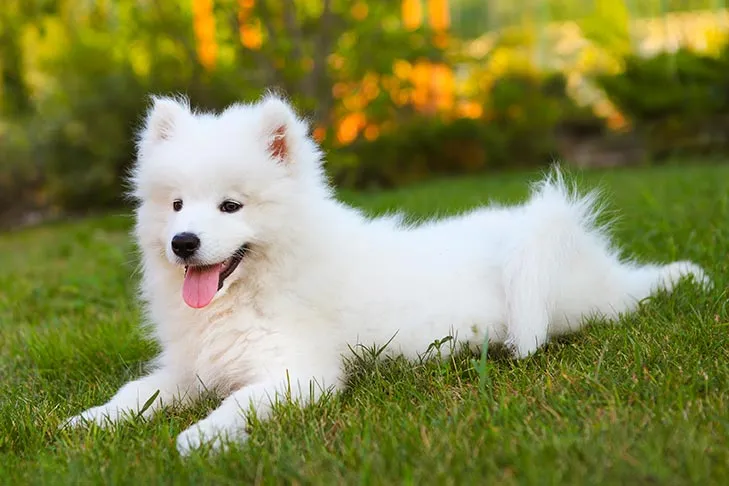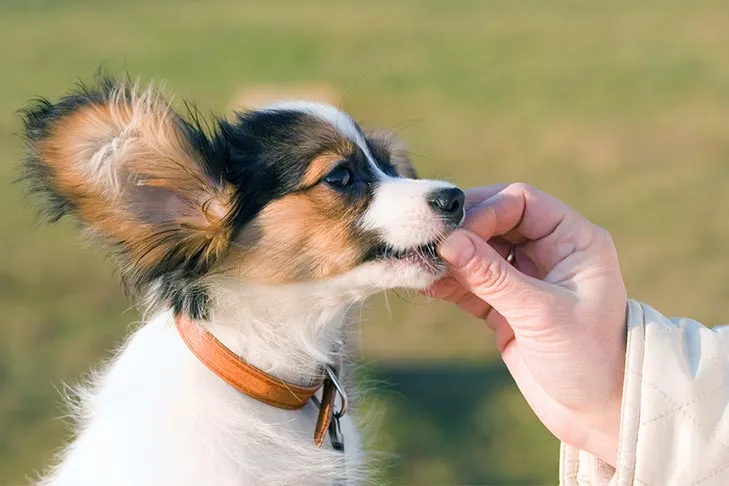As a dog owner, you might wonder which everyday human foods dogs can eat without risking their health. Sharing table scraps can be tempting, especially when your pup gives you those pleading eyes, but not all people food is safe. This guide covers common human foods dogs can eat in moderation, backed by veterinary insights from sources like the American Kennel Club (AKC). Always consult your vet before introducing new treats, and prioritize a balanced dog food diet. For more on what foods are safe for puppies to eat, check our related guide.
Bread
Plain bread in small amounts won’t harm your dog, provided it has no toxic additives like raisins or spices. According to AKC experts, it’s essentially empty calories—high in carbs but low in nutrition—similar to how it affects humans. Opt for homemade versions over store-bought ones loaded with preservatives. Still, bread shouldn’t be a staple; overfeeding can lead to weight gain. Skip it if your dog has wheat sensitivities, and always monitor portions to avoid digestive upset.
Cashews
Unsalted cashews are okay for dogs in limited quantities, offering benefits like calcium, magnesium, proteins, and antioxidants. These nuts have less fat than others, making them a occasional treat. However, excess can contribute to obesity, so stick to a few pieces. From personal experience fostering rescue dogs, cashews were a hit during training sessions, but I always unsalted them first. High-fat nuts remain a risk for pancreatitis-prone breeds.
Cheese
Most dogs tolerate cheese well in small to moderate amounts, unless they’re lactose intolerant—a condition that’s uncommon but worth watching for symptoms like gas or diarrhea. Low-fat options like cottage cheese or mozzarella are ideal due to lower fat content. Many pups love cheese-based treats, such as Himalayan dog chews made from dried yak cheese.
 All American Dog resting its head on the kitchen table looking at cheese.
All American Dog resting its head on the kitchen table looking at cheese.
Cheese provides protein and can aid training, but moderation prevents excessive calorie intake.
Coconut
Coconut’s lauric acid fights bacteria and viruses, while also freshening breath and soothing skin issues like hot spots or flea allergies. Both coconut flesh, milk, and oil are safe—just remove the hard shell to prevent choking. Vets often recommend coconut oil for coat health in small doses (about 1/4 teaspoon per 10 pounds of body weight daily). It’s a natural remedy many holistic pet parents swear by.
Corn
Corn kernels off the cob are fine and appear in many commercial dog foods as a carb source. The whole cob, however, poses a serious blockage risk. Air-popped corn without butter or salt can be a low-cal snack. Fun fact: corn’s fiber supports digestion, but always remove hulls to avoid irritation.
Eggs
Fully cooked eggs are a protein powerhouse, perfect for upset stomachs or as a meal topper. Raw whites, though, inhibit biotin absorption, so scramble or boil them thoroughly. Eggs from free-range sources add extra nutrients like fatty acids for skin and coat health.
Fish
Cooked fish like salmon and sardines deliver omega-3s, protein, vitamins, and calcium (from sardine bones). Limit to twice weekly, fully deboned, and never raw due to parasites. Salmon boosts joint health and immunity—ideal for senior dogs.
Ham
A tiny piece of ham is acceptable occasionally, but its high sodium and fat make it unhealthy long-term. Trim excess and avoid seasoned varieties. Better proteins exist for regular treats.
 French Bulldog eating from a bowl at home.
French Bulldog eating from a bowl at home.
Honey
Raw honey brims with vitamins (A, potassium), minerals, and antioxidants. Small amounts build allergy resistance via local pollen exposure and soothe minor wounds topically. Use sparingly to avoid sugar spikes.
Milk
Small sips of milk are okay for non-lactose-intolerant dogs, but watch for tummy troubles. Puppy milk replacers are safer alternatives for treats.
Peanut Butter
Xylitol-free, unsalted peanut butter is protein-rich with healthy fats, B vitamins, E, and niacin. It’s great for stuffed toys or meds. Always check labels—some brands are deadly. Learn more about what peanut butter can dogs not eat.
Peanuts
Unsalted peanuts provide fats and protein but demand moderation to prevent pancreatitis or salt overload.
Popcorn
Plain, air-popped popcorn offers thiamine, riboflavin, iron, and fiber for eye and gut health. Ensure kernels pop fully to dodge choking.
Pork
Lean, cooked pork supplies digestible protein and amino acids with fewer allergy risks than some meats.
Quinoa
This grain-free alternative packs protein and nutrients, now in premium kibbles replacing corn or wheat.
 Samoyed puppy laying in the grass outdoors.
Samoyed puppy laying in the grass outdoors.
Salmon
Fully cooked salmon shines for omega-3s supporting brain, joints, and immunity—avoid raw to prevent illness.
Shrimp
Shell-free, cooked shrimp provide antioxidants, B12, and low-cal nutrition occasionally.
Tuna
Water-packed, spice-free tuna or fresh cooked offers omega-3s sparingly due to mercury.
Turkey
Skinless, boneless, unseasoned turkey is safe—poultry bones splinter dangerously.
Wheat or Grains
Grains like wheat supply protein, fats, and fiber unless allergies dictate otherwise—vet advice is key.
Yogurt
Plain, low-sugar yogurt delivers probiotics for digestion, skipping sweetened or artificial varieties.
 Papillon puppy gently taking a treat from a hand.
Papillon puppy gently taking a treat from a hand.
Foods Dogs Should Never Eat
While many human foods dogs can eat safely in moderation, others are outright dangerous. For a full list, see what foods are not safe for dogs to eat or what shouldnt i feed my dog. Common culprits include chocolate, grapes, onions, and xylitol—keep them inaccessible.
In summary, human foods dogs can eat enhance bonding when chosen wisely, but they shouldn’t replace quality dog food. Prioritize portion control, preparation (cooked, plain), and your vet’s input for breed-specific needs. Your furry friend will thank you with a healthier, happier life. Share your safe treat stories in the comments!
References
- American Kennel Club (AKC): Various articles on canine nutrition (e.g., akc.org/expert-advice/nutrition).
- Consult local veterinarians for personalized advice.
